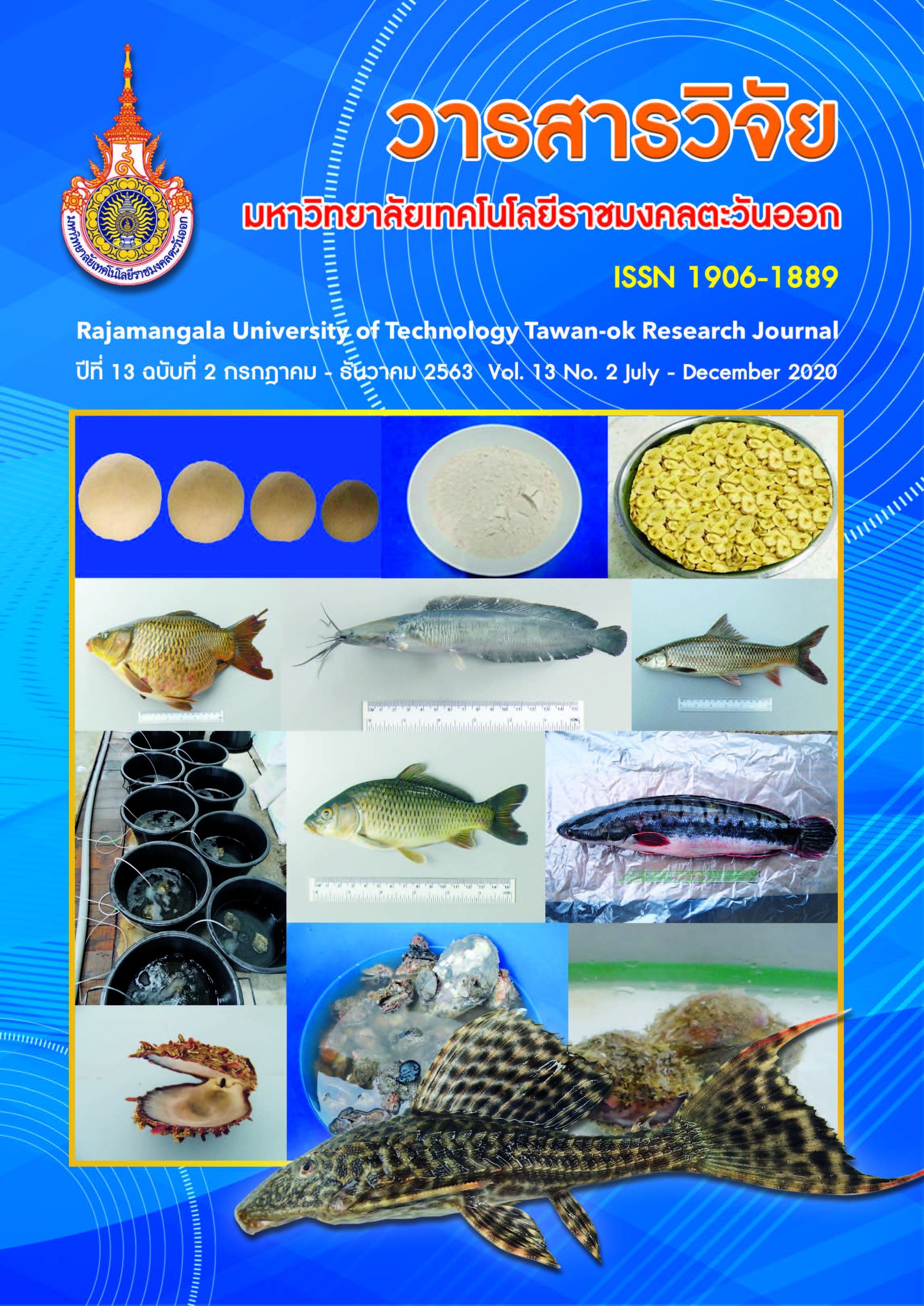Application of Golden Banana Flour to Increasing Fibber in Soft Bread Products
Main Article Content
Abstract
The objective of this study was to investigate the use of golden banana flour to substitute wheat flour in soft bread. The substitution of wheat flour with golden banana flour at 0 (control), 25, 50 and 75 % by weight of whole flour on soft bread production was further carried out. The results found that wheat flour substituted with banana flour at a 25% had highest overall acceptability score (p≤0.05), but the preference score for color, flavor, and were not different from control group (p>0.05). However, the preference score for texture was highest in a ratio of 25:75 (p≤0.05). The value of lightness, bread volume decreased when the proportion of golden banana flour substituted to wheat flour was increased. However, the value of redness and shear force was in vice versa. Almost chemical properties such moisture, fat lipid ash and carbohydrate were not significant different among all treatments ratio (p>0.05). However, a fiber property was increased; when, the proportion of golden banana flour substituted to wheat flour was increased. Consumer test was conducted with 30 consumers and the majority of the tested consumers (75%) accepted brownie substituted with 25% of golden banana flour.
Article Details
References
A.O.A.C. 2000. Official Method of Analysis. 16th ed. The Association of Analysis Chemists, Virginia.
Chammek, C. and Naiwikul, O. 1998. Basic banking science and technology. Kasetsart University, Bangkok. 224 pp.
Khun Phra Rak, C. and Khaocharoen, T. 2009. Production of Banana Flour Cookies with Black Sesame. [online] Sources http:// www.crdc.kmutt.ac.th/document/download/agr/agr2/5/5.8.pdf. (18 January, 2561)
Peeraphatchara, J. 2004. Bakery products from banana flour. Odeon Store, Bangkok 136 pp.
Peeraphatchara, J., Sukontachart, T., Mungceiykklang, O., Prajakchit, C., Ban Pa Sung Noen, J. and Sahaphanphong, S. 2011. Project to increase the value of processed products from bananas for commercial use. [online] Source: http://www.decadel.ird.rmutp.ac.th/wp- content/uploads/2013/05/เอกสารฝึกอบรม-23.pdf. (18 January, 2561)
Pongsamran, S. 2007. Pastry product technology. Food Technology, Rajamangala University of Technology Tawan-Ok Chanthaburi Campus, 123 p.
Silayoi, B. 2002. Banana. 3rd edition. Kasetsart University Press. Bangkok. 357 pp.
Sriroth, K. and Piyachomkwan, K. ปิยะจอมขวัญ. 2003. Starch industry; Technology. Kasetsart University, Bangkok. 303 pp.
Wattanachai Yingcharoen, D. 1999. Thai bananas to the year 2000. Seminar documents. Department of Agricultural Extension, Bangkok.
Yuenyongphaipha, W., Worasing, S., Sangnak, A. and Kraschon, N. 2014. Snack Food Product Development Project from Sea-Lettuce Algae for School Children. Complete research report. Research project, budget type, income, Burapha University, Chonburi. 97 p.


